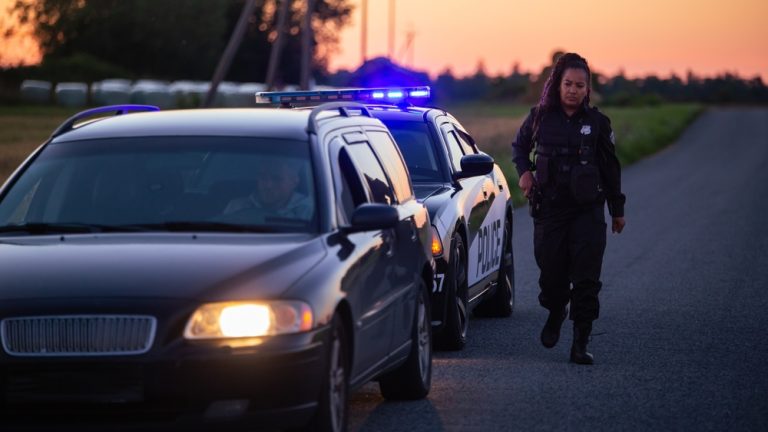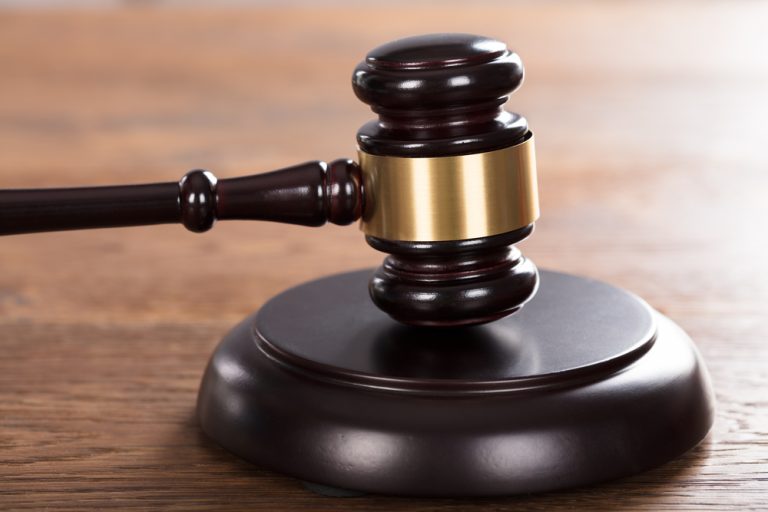A Miranda Procedural Violation Does Not Necessarily Create a Civil Cause of Action for a Violation of the Fifth Amendment
A Miranda Procedural Violation Does Not Necessarily Create a Civil Cause of Action for a Violation of the Fifth Amendment
The United States Supreme Court has recently held that a violation of the Miranda procedure does not necessarily create cause of action for a violation of the Fifth Amendment to the United States Constitution.[1] In reaching this decision, the Court continued its history of distinguishing between a violation of the prophylactic Miranda procedure and eliciting of compelled testimony in violation of the Fifth Amendment.[2]
This case arose from a criminal investigation conducted by the Los Angeles County Sheriff’s Department. The criminal defendant was working as a certified nursing assistant in a medical center, when a female patient accused him of sexually assaulting her. A deputy interviewed the employee in detail at his jobsite and obtained a written statement of apology for the employee’s improper touching of the patient. The parties disputed whether coercive interviewing techniques were used, but it was undisputed that the deputy did not provide Miranda warnings to the suspect before questioning. The suspect employee was ultimately arrested for unlawful sexual penetration.
During the first criminal jury trial, the defendant unsuccessfully challenged the admissibility of the confession, the trial court found he was not in custody so Miranda did not apply, but the case resulted in a mistrial. During the re-trial, the defendant again unsuccessfully challenged the admissibility of his confession, and the re-trial resulted in an acquittal. The now-acquitted criminal defendant brought a Section 1983 claim against the deputy and several other defendants, alleging, among other things, a violation of his Fifth Amendment right against self-incrimination.
Following the first civil trial, a jury found in favor of the former criminal defendant/plaintiff, however, the verdict was set aside by the trial judge due to an erroneous jury instruction. In the re-trial, the plaintiff sought a jury instruction requiring the jury to find a violation of the Fifth Amendment if it found that the confession was improperly obtained in violation of the Miranda procedure and that the statement was improperly used against the plaintiff in the criminal trial. The trial judge rejected the request, deciding that a violation of the Miranda procedure was not a de facto violation of the Fifth Amendment. Instead, the Judge instructed the jury to decide if the plaintiff’s confession had been “improperly coerced or compelled,” and that “a confession is improperly coerced or compelled . . . if a police officer uses physical or psychological force or threats not permitted by law to undermine a person’s ability to exercise his or her free will.” The jury decided the deputy had not improperly coerced the confession and found in his favor.
An appellate panel of the Ninth Circuit Court of Appeals reversed, holding that the use of an un-Mirandized statement against a defendant in a criminal proceeding established a violation of the Fifth Amendment and might support a civil rights claim against the officer who obtained the statement. The deputy unsuccessfully sought rehearing before the entire Ninth Circuit Bench, and the Supreme Court accepted the case for review.
In finding that a Miranda violation does not automatically establish a constitutional violation, the Court conducted a detailed analysis and comparison of the Miranda procedure and the right against compelled self-incrimination secured by the Fifth Amendment. Relevant here, the Fifth Amendment provides three rights: (1) for a defendant to refuse to provide testimony against him or herself in a criminal trial; (2) to not answer any questions in any other proceeding where the answers may incriminate him or her in future criminal proceedings; and (3) the right to bar the introduction into evidence of out of court statements obtained by compulsion. The Miranda Court determined that procedural requirements must be met before a custodial interrogation could lawfully commence. This decision resulted in the now familiar recitation of rights that must be provided to a detained suspect prior to custodial interrogation. Statements obtained in violation of this procedure may not be used in the state’s case in chief. The Court remained consistent with its prior cases in determining the Miranda procedure, although constitutionally based, was prophylactic none-the-less, and that a violation of the procedure did not automatically result in a constitutional violation.
Going back to Miranda itself, which was decided over 50 years ago, the Court recounted the differences between violating a technical rule – the Miranda procedure – versus engaging in the unconstitutional coercion of incriminating testimony. The Miranda Court itself recognized that the Constitution did not itself require a particular solution for the protection of the right against self-incrimination, and that its judicially developed procedure was not intended to create a “constitutional straight jacket.” Since then, the Court has maintained a consistent interpretation of Miranda’s procedural requirements as preventative measures to protect the constitutional right, and that the procedure itself was not a right secured by the Constitution.
The Court went on to analyze whether a violation of Miranda’s procedural requirements warranted the right to monetary recovery, and held that it did not. The prophylactic purpose of the Miranda procedure is sufficiently served by the suppression at trial of statements obtained in violation of its provisions. The Court reasoned, “[a]llowing the victim of a Miranda violation to sue a police officer for damages under § 1983 would have little additional deterrent value, and permitting such claims would cause many problems.” The Fifth Amendment right against self-incrimination and compelled testimony remains in full force and effect, however, a violation of Miranda’s procedural requirements is insufficient on its face and without more to trigger its protections.
Although Vega is an important case in the civil context, it does not impact the day-to-day enforcement of the law, investigations or interviews of those suspected of violating the law. The Miranda warnings are still required prior to the custodial interrogation of any suspect, and the exclusion of statements obtained in violation of the procedure in criminal court remains the law of the land. Similarly, law enforcement officers remain exposed to constitutional liability for violations of the Fifth Amendment in cases where the officer unlawfully compels self-incriminating statements or testimony. This most recent decision offers clarity regarding the unavailability of civil claims for damages arising solely from a violation of Miranda’s procedural provision, and serves to establish a nation-wide standard for claims of this type.
[1] Vega v. Tekow, _____ U.S. _____, _____ S. Ct. _____, Case No. 21-499 (June 23, 2022).
[2] See e.g. Oregon v. Elstad, 470 U.S. 298 (1985); Michigan v. Tucker, 417 U.S. 443 (1974).








